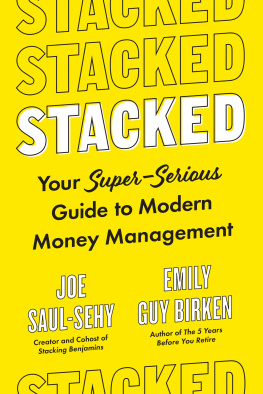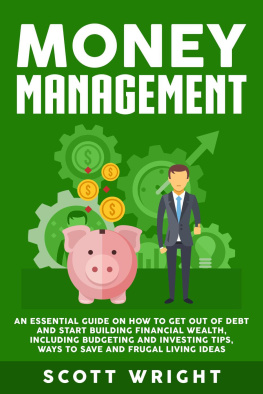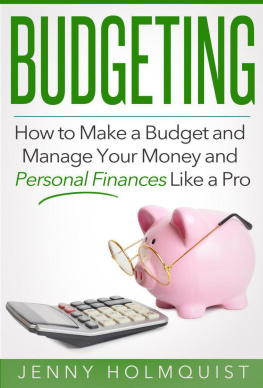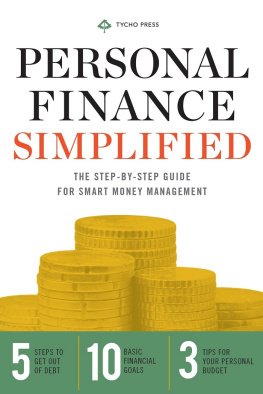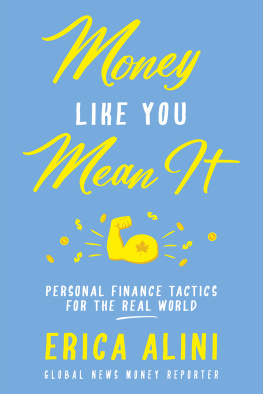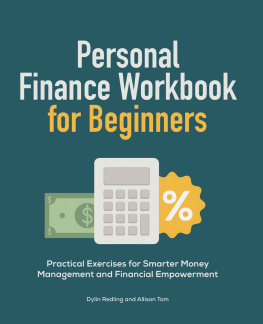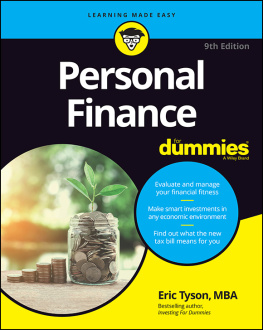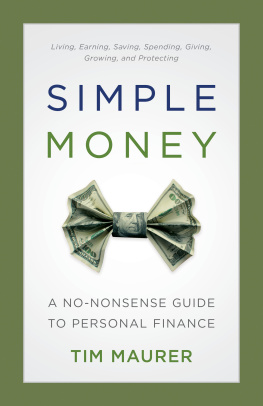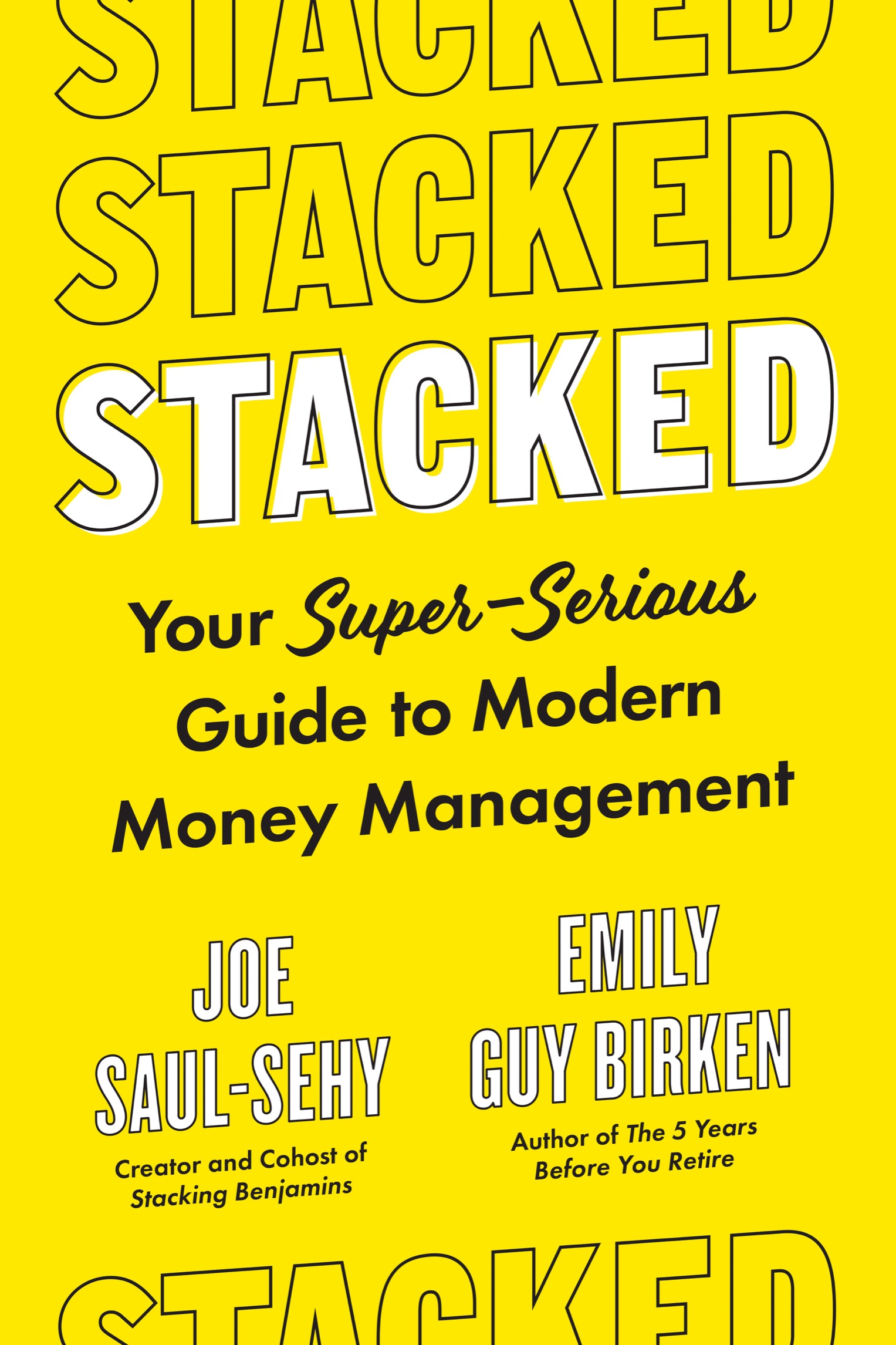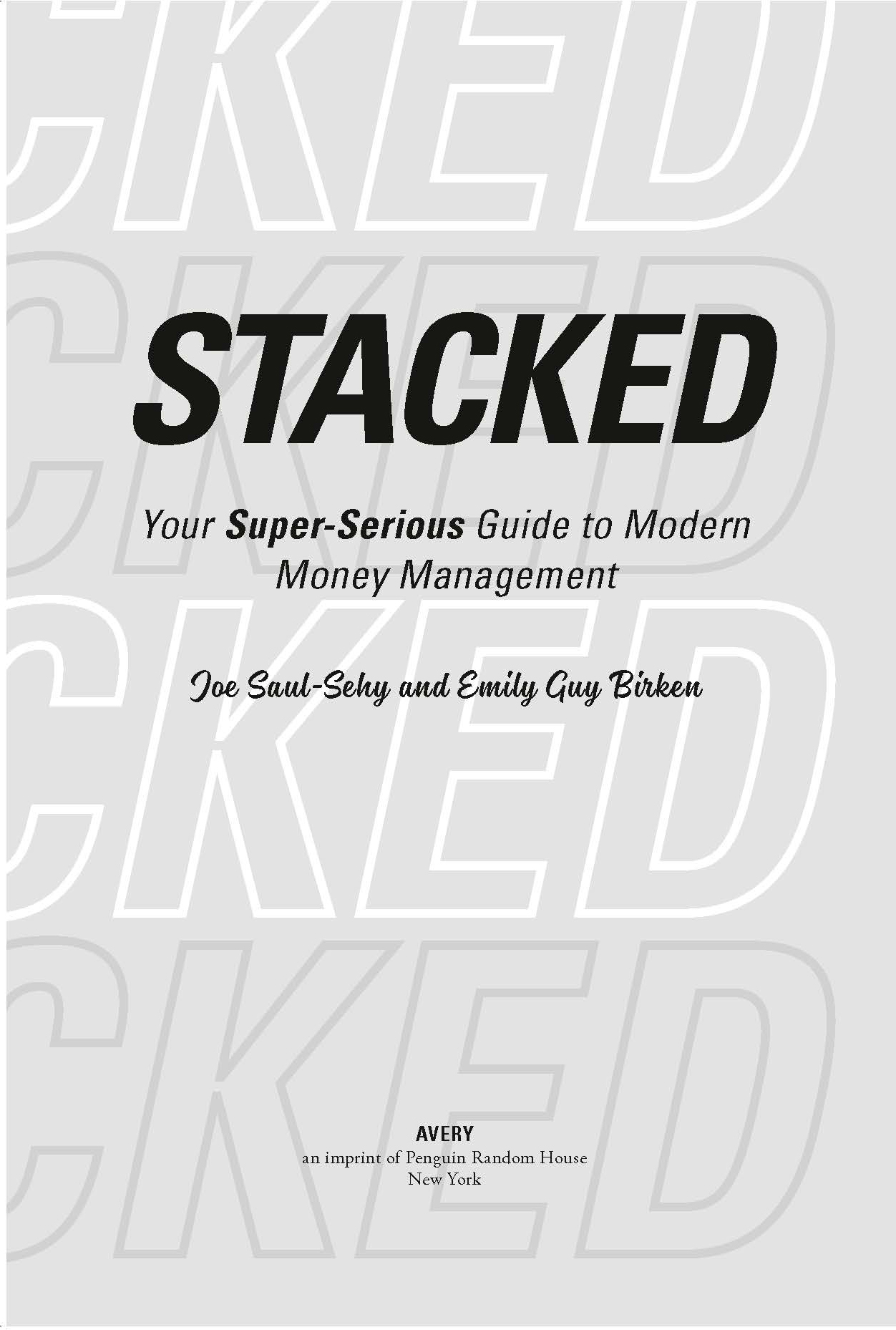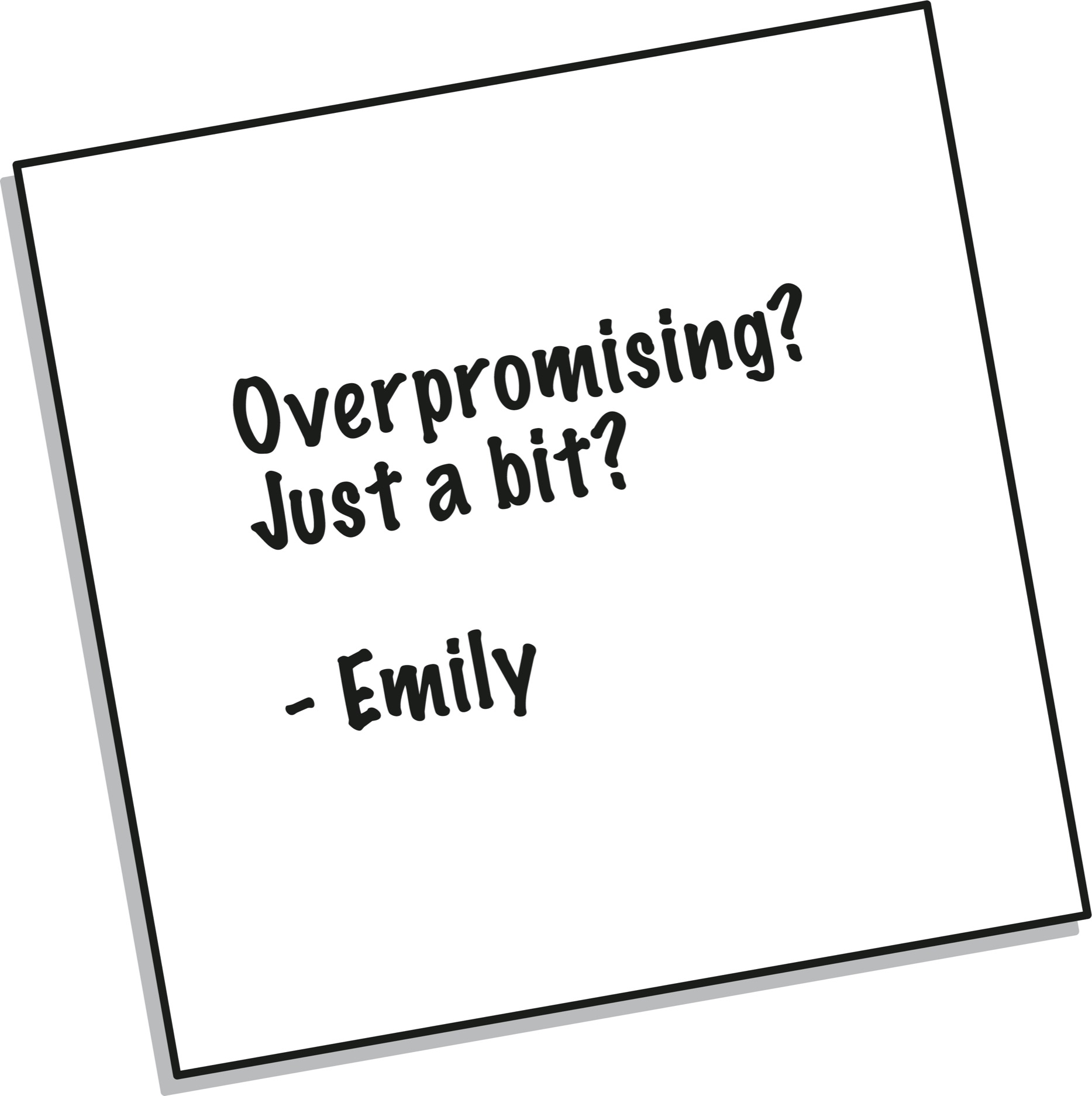
an imprint of Penguin Random House LLC
penguinrandomhouse.com
Copyright 2021 by Joe Saul-Sehy and Emily Guy Birken
Penguin supports copyright. Copyright fuels creativity, encourages diverse voices, promotes free speech, and creates a vibrant culture. Thank you for buying an authorized edition of this book and for complying with copyright laws by not reproducing, scanning, or distributing any part of it in any form without permission. You are supporting writers and allowing Penguin to continue to publish books for every reader.
ISBN (hardcover) 9780593330678
ISBN (ebook) 9780593330685
Cover design by Amanda Weiss
Book design by Silverglass, adapted for ebook by Kelly Brennan
The Morningstar Style Box on is 2021 Morningstar, Inc. All Rights Reserved. The style box information contained herein: (1) is proprietary to Morningstar and/or its content providers; (2) may not be copied or distributed; (3) does not constitute investment advice offered by Morningstar; and (4) is not warranted to be accurate, complete or timely. Neither Morningstar nor its content providers are responsible for any damages or losses arising from any use of this information. Past performance is no guarantee of future results. Use of information from Morningstar does not necessarily constitute agreement by Morningstar, Inc. of any investment philosophy or strategy presented in this publication.
Timeline illustrations on were created by Tina Ichenberg.
The asset periodic table on was created by Paul Girard.
Einstein splitting atoms on were created by Brad Lark for Stacking Benjamins LLC.
Fox and unicorn illustrations throughout the book were created by Emily Guy Birken.
A brief portion of Bonus Sub-Chapter 2A originally appeared in different form on the website Wise Bread under the title 4 Ways to Make Debt Repayment Fun, January 19, 2018.
This publication is designed to provide accurate and authoritative information in regard to the subject matter covered. It is sold with the understanding that the publisher is not engaged in rendering legal, accounting, or other professional services. If you require legal advice or other expert assistance, you should seek the services of a competent professional.
Interviews included at the end of each chapter were originally published on the Stacking Benjamins podcast and are used with permission. These interviews have been edited for length and clarity. Longer versions of interviews are included in the audio version of this book.
pid_prh_5.8.0_138892717_c0_r0
Joe:
For Cheryl.
Remember all of those times I messed up with money and told you itd someday pay off?
#micdrop
Emily:
Dammit! I was going to dedicate this to Cheryl, too.
All right, I guess this is for Jayme. Thanks for always laughing at my jokes. (Except the puns, of course.)
Contents
Introduction
Wherein Joe Explains Why Us and Why This Book
In this time of health and financial uncertainty, there are two things I wish I'd known earlier:
Start with the basics.
Back when I struggled with money, I was always searching for shortcuts, easy fixes, and ways to cover up mistakes I'd made along the wayand I've made more than my fair share. A better path (and the only one I know now that works, after too much stumbling around) is to focus on building your house one brick at a time, just like the pig in that timeless tale.
Laughter is more important than ever.
If I hadn't had the ability to laugh through my mistakes, I wouldn't be here to roll out the red carpet for you now. If you're going to grow, mistakes are going to happen. Your goal should be to make those mistakes quickly and work past them. The ability to shake your head, stand back up, laugh a little, and keep moving will allow you to stay positive and focused on the prize.
With these two universal truths in mind, it's become clear to me that there's a big need for a financial book that can make you laugh as you read. Sure, countless financial books already hit store shelves year after year. (My co-writer, Emily, the brains of this operation and a former bookseller, wants me to clarify that I understand that financial books, like all other books, are placed lovingly on store shelves by professional English majors who understand the importance of the printed word and they do not go about throwing them willy-nilly at shelves like they're flying salmon at Pike Place Fish Market. She also points out that the number of financial books released each year is, in fact, countable, and that my description of them as countless shows laziness in my math.)
My point, already nearly derailed, is that there are lots of financial books out there. But in good times or bad, something important is missing from the genre. I know about this gap because nearly every author of the top titles each year asks to come talk about it on my podcast. In the course of creating and cohosting the Stacking Benjamins podcast, I construct three shows per week, forty-seven weeks of the year. With that many shows to record, I ask a number of experts to sidle on up to the microphone.
The majority of the world's top personal finance guests have ducked their head and climbed down the stairs to my mom's basement to discuss their latest project (you'll hear from Mom later because she owns our podcasting headquarters and has plenty of wisdom to share). In our corner of the world, finance and investing are serious sports. The prevailing attitude among many in my cohort seems to be Money only works if you take it seriously. There are important retirement accounts to fill, and overly serious bank managers with somber mustaches and knowing gazes awaiting your next savings deposit. There's no room for giddiness in wealth building!
Unfortunately, treating money as only slightly less fun than a colonoscopy limits the reach of our collective voices. We are pigeonholed with people promising wealth without work and riches beyond measureand often for a much stiffer (and hidden) price than a free podcast. Enter Stacked.
The truth is, the sport of Benjamin stacking isn't played the way you may think. As it turns out, being a big shot and being wealthy are two totally different games. We're going to teach you the real game we had to stumble intoand happily for all of us, the real game is more unicorns and rainbows and less spreadsheets and deprivation.
So if you've ever wondered, Could I stack some Benjamins? then you've come to the right book. Whether you're intimidated by money terms or can quote every line from The Big Short, you're sure to find something helpful in this handbook.
But don't just take my word for it. Emily Guy Birken has helped countless readers build their own stacks into intimidating towers, and she's agreed to help. If you've listened to the podcast, you'll know that we promise to teach you nothing. But I don't want to tarnish Emily's reputation, so it's high time to do something useful for once and make this book a fresh start: something you can actually learn from.

